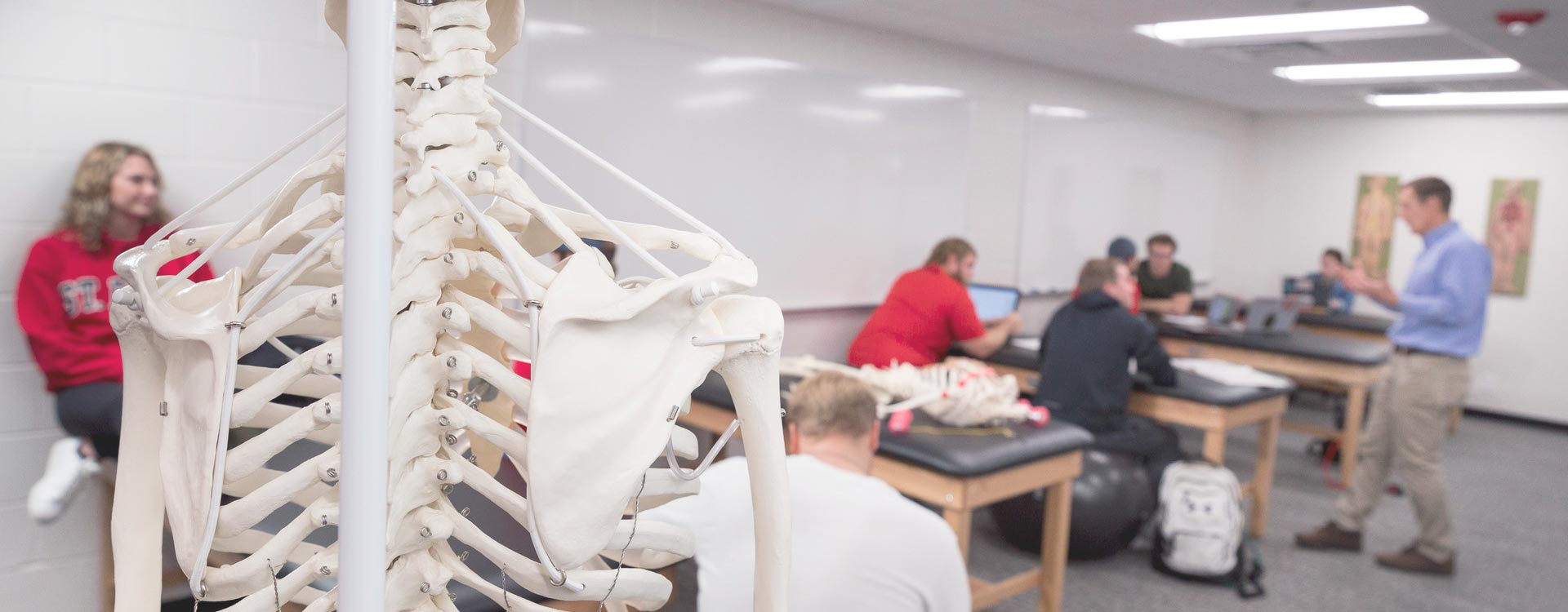 Home
Home

Select Page
Careers
There are many options for our students!
Quick Facts
- Total classes:
- Weeks per class:
- Total Credit Hours:
- Average classes:
- Total Faculty:
- Scholarships:
Certified Strength and Conditioning Specialist
Certified Strength and Conditioning Specialists (CSCSs) are professionals who apply scientific knowledge to train athletes for the primary goal of improving athletic performance. They conduct sport-specific testing sessions, design and implement safe and effective strength training nutrition and injury prevention. Recognizing that their area of expertise is separate and distinct, CSCSs consult with and refer athletes to other professionals when appropriate.
The NSCA’s Certified Strength and Conditioning Specialist certification is a widely respected certification in this area. If you wish to specialize in working with athletes and athletic teams, this is the certification for you.
The NSCA offers student memberships. In addition to educational opportunities, the membership comes with several perks, including scholarship opportunities. There are special rates for student members as well.
Personal Trainer
Personal trainers are health/fitness professionals who, using an individualized approach, assess, motivate, educate and train clients regarding their health and fitness needs. They design safe and effective exercise programs, provide the guidance to help clients achieve their personal health/fitness goals and respond appropriately in emergency situations. Recognizing their own area of expertise, personal trainers refer clients to other health care professionals when appropriate.
The International Health, Racquet, and Sportsclub Association (IHRSA) have a position statement regarding the hiring of certified personal trainers. That position statements includes language to the effect that the personal trainer should hold at least one certification through an accredited organization.
There are currently five organizations that have been accredited for personal training certification programs:
Another organization that is a world-wide leader in exercise and health is the ACSM. So, while they are currently not accredited, I believe their certification is well respected.
Athletic Trainer
- Work with team physicians, exercise physiologist, physical therapists and coaches in the care and prevention of illness and injury related to sports and exercise.
- An undergraduate degree from an accredited program is required to sit for the National Athletic Trainers Association (NATA) certification exam beginning in the year 2004.
- In most states licensure is required.
- One of the requirements for licensure is to successfully pass the NATA certification exam.
- Athletic trainers typically work with athletes at the high school, college, or professional level as well as sports medicine clinics.
Biomechanist
Biomechanics is the study and explanation of the laws of physics as applied to physical activity, exercise and sport. Biomechanics can be used to explain how muscles, bones, and joints are injured under certain conditions and to improve performance using motion analysis techniques.
Biomechanists are typically employed in research settings and clinical sites. Future growth appears to be in industrial ergonomic settings.
- Minimal requirement is generally a master’s degree.
Dietitian/Sports Nutritionist
Dietetics is the study of nutrient intake and how foods are digested and metabolized in order to provide the necessary energy to fuel muscular activity. Dietitians also study dietary patterns in order to maximize performance and to prevent disease and improve health.
To become a registered dietitian, you must:
- Complete an undergraduate degree in dietetics,
- Complete a nine-month American Dietetics Association (ADA) approved internship
- Pass the ADA certification exam.
Exercise Physiologist
An exercise physiologist studies the acute and chronic physiological responses and adaptations resulting from physical activity. This knowledge can then be applied to improve or maintain health, fitness or performance. Traditionally, exercise physiologists worked and studied only with athletes to improve performance.
Today, however, exercise physiologist also work and study in commercial, clinical, and workplace settings to increase health, fitness, and quality of life of the general population. For example, an exercise physiologist may work as a cardiopulmonary rehabilitation specialist, a personal trainer, or direct an employee fitness program.
- At least an undergraduate degree is required.
Medical Physician
A medical physician is highly trained in the art and science of the diagnosis and treatment of disease and the maintenance of health.
Beyond medical school there are many specialties to choose from in order to be part of a sports medicine or exercise science team. Such specialties might include primary care sports medicine, orthopedic surgery, or cardiology. Each specialty has from three to five years of intern and residency training and perhaps an additional one to two years of fellowship training.
- Medical schools require a minimum of four years after a basic college degree.
- Most medical doctors are employed in clinics or hospitals.
Physical/Occupational Therapist
A physical therapist helps people recover from injuries or diseases of the muscles, joints, nerves or bone. An occupational therapist works more with fine motor skills and dexterity. Both therapists use various physical modalities and exercise, focusing in movement dysfunction.
There are many areas of specialization in physical therapy including: sports medicine, orthopedics and pediatrics.
- Most physical and occupational therapy schools require two to three years of education after a four-year undergraduate degree.
Must pass a national exam to become a licensed/registered physical or occupational therapist.